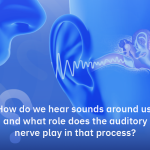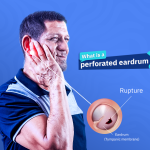Herpes Zoster Oticus
If your answer is yes, then you may be at risk of developing Herpes Zoster Oticus. But don’t worry—while it’s not a serious condition, it requires careful handling and swift action to manage its effects.
Herpes Zoster is a common viral infection that causes a painful skin rash that appears in the form of a line of blisters. It can affect any part of the body and is easily transmitted through direct contact with the infected skin.
There are different types of herpes zoster based on the virus’s location in the body. One of these types is Herpes Zoster Oticus, also known as Ramsay Hunt Syndrome, which we’ll explore in more detail below:
- What is Herpes Zoster Oticus?
- Causes of Herpes Zoster Oticus
- Symptoms of Herpes Zoster Oticus
- Complications of Herpes Zoster Oticus
- Treatment Methods for Herpes Zoster Oticus
- How to Prevent Herpes Zoster Oticus
- Home Care Guidelines
What is Herpes Zoster Oticus?
It is a viral herpes infection that spreads to the facial nerves near the ear, leading to several annoying symptoms affecting the ear, face, neck, scalp, and causing ear ringing (tinnitus).
Causes of Herpes Zoster Oticus:
This virus resides in the nerve roots near the ear. The main cause is the varicella-zoster virus—the same virus responsible for chickenpox. This virus never fully leaves the body; instead, it hides and can reactivate later, affecting the facial nerve and causing Herpes Zoster Oticus in the form of painful, fluid-filled sores.
It primarily targets the seventh cranial nerve, responsible for facial muscle control, and the eighth cranial nerve, which plays a major role in hearing and balance due to its connection to the inner ear.
Symptoms of Herpes Zoster Oticus:
The patient experiences severe facial nerve pain, along with the following symptoms:
Severe ear pain
Painful red rash
Sensorineural hearing loss due to impaired transmission of sound vibrations to the brain, usually temporary
Nausea, vomiting, and dizziness
Facial weakness, especially on the side of the affected ear
Neck pain and slurred speech
Fluid-filled sores around the ear or on the face
Facial nerve paralysis with symptoms like difficulty closing the eyes and inability to smile
Ear ringing (tinnitus)
Complications of Herpes Zoster Oticus:
If not treated promptly, the condition may worsen and lead to:
Permanent hearing loss and loss of facial movement control
Corneal damage due to difficulty closing the eyelid, causing eye pain and blurred vision
Postherpetic neuralgia—persistent nerve pain even after the visible symptoms disappear, caused by nerve fiber damage
Treatment Methods for Herpes Zoster Oticus:
Historically, treatment was limited to hot compresses, pain relievers, or antibiotics for secondary bacterial infections. However, modern medicine offers effective antiviral medications that treat symptoms and prevent complications.
Early treatment reduces pain severity and long-term complication risk. Current treatments include:
Pain Relievers: To ease the severe pain
Antivirals: If started early, they help reduce symptoms and prevent complications
Corticosteroids: To prevent nerve and ear complications, relieve acute pain, reduce dizziness, and help restore facial nerve function
With proper treatment and adherence to medical guidance, the infection typically resolves within two weeks.
How to Prevent Herpes Zoster Oticus:
To protect children from this condition in the future, make sure they receive the chickenpox vaccine. Doctors also recommend the shingles vaccine for individuals aged 50 and above.
Home Care Guidelines:
These at-home steps help reduce pain:
Protect the rash-affected area
Use cool, damp compresses to relieve pain
Apply moisturizing eye drops during the day, and use eye ointment at night, then close and cover the eyelid






